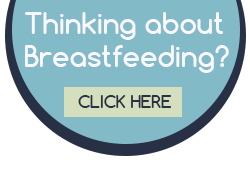FAQs | Frequently Asked Questions
Do I need to avoid eating certain foods?
No (and Yes)
Eating many different tasting foods is actually a good thing when breastfeeding! When you eat foods, there will be slight flavor changes in baby’s milk. These flavor changes actually cause baby to feed for longer periods help them accept new flavors easily. This makes breastfed babies more happy to try and accept new foods and the foods you have been eating throughout breastfeeding when you start them on solids!
A diet with balanced food options is ideal to keep you healthy. During the first 6 months of breastfeeding, 500 extra calories above what is needed to maintain your current weight is recommended. 400 excess calories a day for anytime after 6 months.
If you are following a special restricted diet (example: vegetarian), please contact your local dietitian or talk with your physician about how to maximize all vitamins and minerals. Women who avoid meat and/or dairy products should consume foods rich in iron, calcium and vitamins D and B12.
When taking in Caffeine through foods and drinks, only a very small amount is available to the infant through breastmilk. Women who take in moderate amounts of caffeine a day cause no significant intake to a healthy term infant. However, you should be careful of how much caffeine you take in if you have a premature baby because their bodies take longer to get rid of caffeine.
Although RARE, If your baby is showing allergic symptoms and is exclusively breastfed, then you may want to speak to your local dietician, physician, or breastfeeding specialist about what your diet includes. Some symptoms include vomiting, diarrhea, colic, runny nose, cough, and asthma, and eczema. Very small amounts of the foods you eat can be passed into your breast milk and cause allergic responses. The most common allergens are cow’s milk, dairy products, eggs, fish, beef, and peanuts. Studies have shown a reduction in allergic symptoms and frequency in children who’s mom’s avoided these foods for the first 4-6 months of breastfeeding.
Can I still breastfeed when my baby has teeth?
Yes.
When babies are teething, they tend to want to soothe their gums by chewing. If this happens while breastfeeding, be persistent and remove baby from the breast. Wait a few seconds and then relatch. Repeat this same procedure then try again. It may only take once for a baby to learn to not use their teeth! They love breastfeeding and learn very quickly that in order to get the bonding and feeding experience they crave, they will not be allowed to use their teeth.
For more information see: https://kellymom.com/ages/older-infant/biting/
Can I breastfeed twins? Or triplets?
Yes.
Studies have shown that most moms of multiples can produce enough milk for 2 to 4 babies. Many moms of twins, triplets and quadruplets have fed their babies for a year and longer! In fact, breastfeeding is EXTRA important for multiples! It provides the best possible nutrition and helps protect them from illness which is very important for those extra small and sometimes premature babies.
Mothers with multiples will need extra support and help during the early feeding days when they first figure out how to manage feeds with more than one baby. Organization for two babies of the same age is different! Feeding two babies at once is possible and can help save time and is a great skill to learn in the early weeks. Having help with other household chores for the first several months will give you more time to spend and establish breastfeeding and a routine.
Other tips include:
- Create a breastfeeding station where you have nutritious snacks and drinks, baby wipes, receiving blankets, breast pads, telephone, etc.
- Practice how to position 2 babies at once comfortably.
- Ask your well-wishers who offer help to help by delivering a meal or sending food.
- Consider joining a breastfeeding support group
- There are also support group for parents with multiples
- Edmonton Twin and Triplet Club – https://www.ettc.ca/membership/
Information retrieved from: Riordan, J. & Wambach, K. (2009) Breastfeeding and Human Lactation. 4th ed. Jones & Bartlett Publishers
Will my breasts change when I breastfeed?
Yes.
Your breasts change during puberty, pregnancy and breastfeeding.
Pregnancy: The start of your milk making cells and milk ducts are made during puberty but don’t fully develop to produce milk until pregnancy. During pregnancy, your breasts will increase in size as your milk making cells and ducts increase in size and number, and the areola (the skin around the base of your nipple) will darken. Early milk making will even start in the middle of your pregnancy.
Right after baby is born: The areola will increase in size in the first few days after your baby is born. The amount of milk you make will increase greatly over the next few weeks and in turn, may notice more fullness to your breasts. Initial swelling or engorgement can happen in the first 2 weeks after baby is born and later on if your breast isn’t emptied over a longer time than usual. Your breasts can feel ‘softer’ after the initial engorgement has settled and this is normal. As long as baby is pooping and peeing normally for their age and gaining weight well, you don’t need to focus on how ‘full’ they feel or look.
Weaning: When weaning your baby, your breasts will know that there is less and less emptying of your milk and will change to meet this need by making less milk. As weaning continues and/or breastfeeding is stopped altogether, your milk making cells with then be ‘deactivated’ or are broken down and disappear to end the current milk making cycle. They will be reactivated and regenerated during any future pregnancies. Some moms report a loss in fullness during this time and this is because there is now no milk and less milk making structures.




